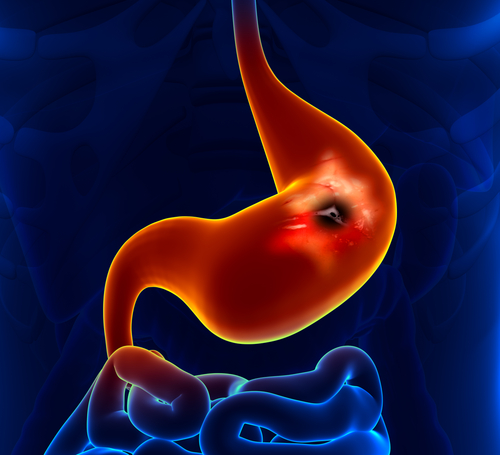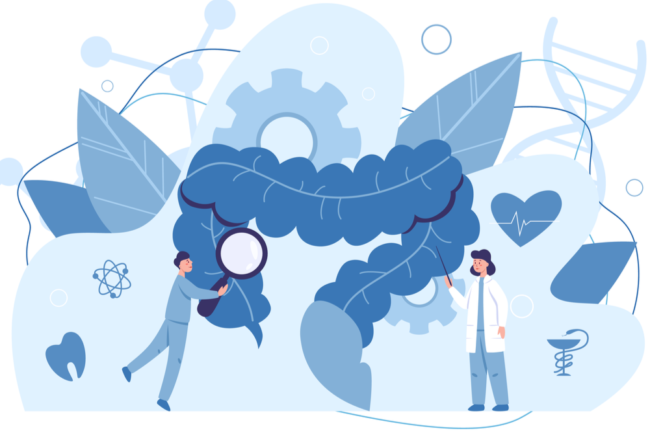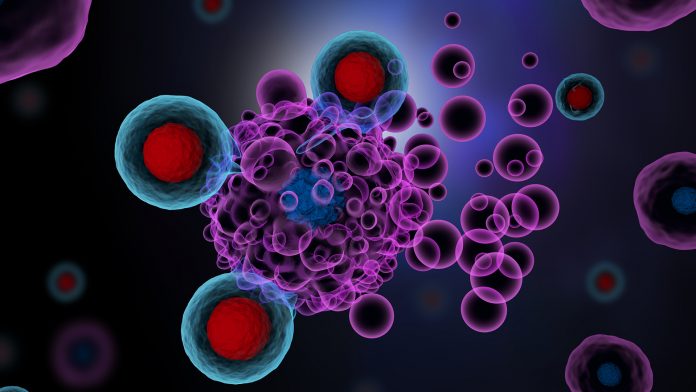Years of AFCR Funding: 2013 to 2016
Mapping the gastric cancer genome for personalized treatment
AFCR & Tianjin Medical University Cancer Institute and Hospital
THE CHALLENGE
—Today’s Dismal Outcomes for Patients With Gastric Cancer
Gastric cancer is the fourth most common cancer and the second leading cause of cancer death worldwide. It is particularly prevalent in the Asian countries such as Japan, South Korea, and especially China, where over half of gastric cancer cases are diagnosed. This cancer is so deadly that less than 3 out of every 10 patients survive longer than 5 years after diagnosis.
One of the reasons that gastric cancer is so vicious is that it arises from many genetic alterations. Tumors that arise in different patients could have diverse molecular characteristics; even different parts of the same tumor mass in the same patient may be genetically distinct. The high degree of heterogeneity in gastric cancer is a key reason for low patient survival, as the distinct genetics of each individual’s disease calls for a tailored, personalized therapeutic strategy for effective treatment.
Unfortunately, the word “personalized” is a luxury when talking about treatment options for gastric cancer, especially for late-stage patients. The reality is that most patients with gastric cancer still receive a kind of “one-size-fits-all” treatment. Not surprisingly, the same treatment may work for one patient, but may not work for another while still causing harmful side effects.
THE NEED
—Personalized Treatment Approach
A more personalized approach to treatment is urgently needed for better patient outcomes.
A personalized approach that is tailored to each patient’s tumor will allow doctors to choose the optimal therapy that will be most effective and least toxic for each individual patient. Such personalized and targeted cancer therapies are expected to be both more successful and less costly than conventional treatments.
The success of this new approach to cancer treatment will heavily rely on a firm understanding of the molecular underpinnings of gastric cancer. With this in place, we can exploit the specific vulnerabilities imparted by the underlying genetics. By targeting the diverse molecular characteristics that drive the disease, new therapeutics can be developed, which can then be selectively prescribed to individuals based on the distinct molecular profile of each patient’s cancer.
THE SOLUTION
—Mapping the Gastric Cancer Genome: Identifying New Treatment Targets
One of the most effective ways to identify these molecular characteristics is by sequencing the genomes of gastric cancer. Because there is so much genetic variability in gastric cancer, doing this sequencing effectively requires a large quantity of high quality gastric cancer tissue samples to be collected from patients, which is a hard-to-find resource faced by all cancer researchers.
Fortunately for many years, AFCR leaders have been working with the Tianjin Medical University Cancer Institute and Hospital (TMUCIH) on a project called the Tissue Bank Consortium in Asia (TBCA). This tissue bank consortium is a platform that promotes and facilitates biospecimen-based international cancer research collaboration. The consortium also collects and stores high quality tumor tissues from patients with all types of cancer. Today, TBCA houses one of the best gastric cancer tissue collections in the world. The tissue bank consortium is able to provide the collaborative scientists an unprecedented resource that cannot be found anywhere else in the world.
THE NEXT STEPS
—Moving Towards Personalized Medicine with United Efforts
Using advanced, “next generation sequencing” technology, cancer researchers have already generated genomic profiles of a large quantity of gastric cancer tissues provided by TBCA, allowing researchers to identify a comprehensive collection of gene mutations.
In January 2015, an initial paper published in the Proceedings of the National Academy of Sciences of the US. Our researchers reported that defects in three cellular signaling pathways (BRCA2, Wnt and PI3-K-ERBB4) might influence the response of gastric cancers to chemotherapy. This is especially exciting, because a number of drugs targeting these pathways are already available, and have been tested in other cancer types such as breast and ovarian cancers. This research suggests that these drugs, when delivered in a personalized way, might benefit patients with gastric cancer as well.
Since then, TBCA has continued with full steam to collect invaluable tumor samples from gastric cancer patients to characterize this complex and heterogeneous cancer. Just this past year, 320 gastric cancer tissue samples and 179 blood samples from gastric cancer patients were collected according to the highest standards of biospecimen collection and processing. Using these samples, researchers are now evaluating biomarkers such as CK19, CK7, LCA and Ki-67, shedding light o the future development of combination of drugs to effectively target various cancer cell groups in gastric cancer.
Continued progress in this field will move us a significant step forward towards more personalized and effective patient care, offering renewed hope for those fighting this vicious disease.
HOW YOU CAN HELP
—You Can Help Develop Personalized Treatment for Gastric Cancer
Your support of AFCR will enable scientists to fully understand how cancer occurs, and develop new and more tailored therapies that directly target each cancer patient’s tumor.
In short, your support will lead directly to more effective treatments with fewer side effects for the patients.
AFCR is already leading the charge to cure cancer through the development of personalized treatments, and we can do this because of your continued loyal support.
When you support AFCR, you’re funding a vision: one in which patients in China and around the world no longer live in a fear of gastric cancer. There is no better way for you to help make this happen than to support the Asian Fund for Cancer Research.
Thank you for your continued support of AFCR. With your donation, you are saving lives.




